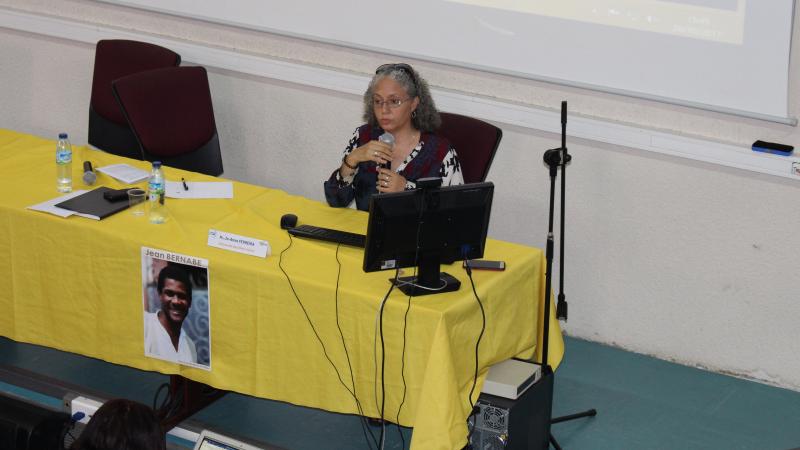COSMIC CREOLE : DENGOLAY STAR

Observing the stars is one of humankind’s oldest pastimes, as ancient legends about the constellations prove. And even in times of social distancing and COVID-19 self-isolation, the beauty and mystery of the night sky offer a sense of consolation. Social distancing has put stargazing parties on hold, but even if your vantage point is a window, you can still contemplate the wonders of the cosmos — and remember that beyond the twinkling clusters of stars, there are lots more objects deep in space, invisible to the naked eye.
Such as exoplanets: planetary bodies orbiting stars outside our solar system, more than four thousand of which have been discovered since the 2009 launch of the Kepler satellite. In 2015, the International Astronomical Union (IAU) began approving exoplanet names. Traditionally, the names of stars were derived from Greek, Latin, and Arabic, but in recent years names have been approved from more diverse cultures. As part of the IAU’s centenary celebrations in 2019, the organisation launched an initiative for each country in the world to name a designated exoplanet and its associated star through national competitions. Jo-Anne Ferreira, a linguist based at the University of the West Indies, chose the winning names for Trinidad and Tobago’s planet and star. Numerically identified as HD 96063b, and discovered in 2011, the exoplanet orbits a giant yellow star in the Leo constellation, 515 light years away from Earth. Now they are officially known as Ramajay (exoplanet) and Dingolay (star). Ferreira talks to Shelly-Ann Inniss about making her contribution to the atlas of the universe.
Have you made a wish upon Dingolay?
No, I haven’t yet!
Did you actually dingolay when you heard the news?
I was and still am blown away. I started to ramajay as I sang along to the late Mighty Shadow’s song “Dingolay”. I definitely dingolayed a little at the ceremony when I first saw my beautiful telescope [the competition prize].
How did you choose the names?
My inspiration was man’s best friend. While visiting my mum, I met a dog called Dingolay O’Connor, and I thought, how perfect — Dingolay! Trinbagonians dance! Ramajay was the next step — Trinbagonians sing! Actually, once I settled on those two, I didn’t look any further. In terms of the campaign rules, they fit perfectly into the category of “long-standing cultural, historical . . . significance.” They both fall under the theme of our national creative genius and joie de vivre. And, of course, they are “not identical to, or too similar to, an existing name of an astronomical object.”
So, to dingolay is to dance, and ramajay means sing or extemporise on the steelpan. Do the names have other meanings?
I found out after I chose them that dingolay is a fascinating word and may have two origins — a possible convergence of Kongo and French. It is also the name of a tassa hand drawn directly from dholak rhythms. I would call that a true Trinbagonian word. Ramajay is a particularly beautiful poetic verb describing the chirping or warbling of a bird. It’s from a French word, ramager (same pronunciation except for the <r>, as in [ˈramaˌʒe]), now rare and archaic. We’ve preserved it here and catapulted it to the stars.
What other names did you consider?
I was mulling over the rules and wondered where I could start, given our huge national vocabulary and wealth of place names from so many different origins. We have over 12,200 words, as documented in Lise Winer’s Dictionary of the English/Creole of Trinidad and Tobago. We know of ten recorded Amerindian languages which coexisted in Trinidad and Tobago. Here in T&T, Patois has made us linguistically and culturally who we are. Like their speakers, Creoles have never really been accorded the respect both speakers and languages deserve, and they have certainly never named exoworlds, as far as we know. It’s time for our peoples and languages to take our rightful place.
For more information about the IAU’s Name Exoworlds project, and the names chosen by other Caribbean countries, visit www.nameexoworlds.iau.org
